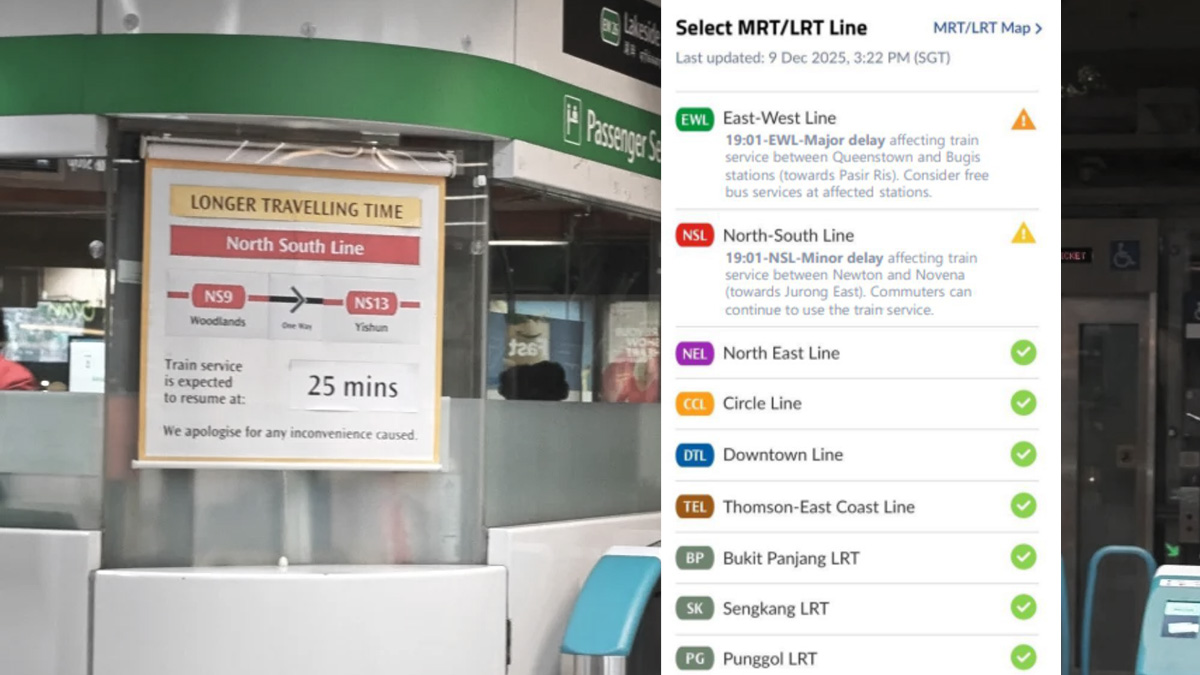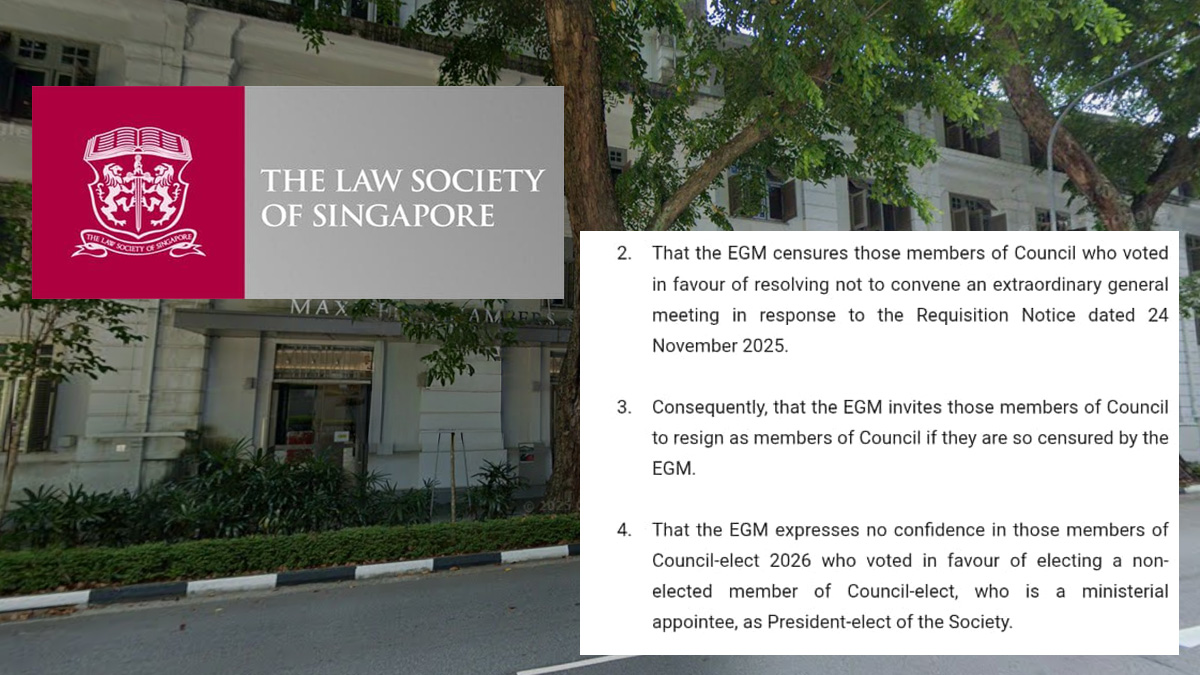Two Indian women arrested for shop theft spree at Changi Airport
Two Indian nationals were arrested on 2 June after allegedly stealing luxury and retail items from multiple shops at Changi Airport. Police say the women, aged 29 and 30, will be charged with theft in dwelling — an offence carrying up to seven years in jail.

- Two Indian women, aged 29 and 30, were arrested on 2 June at Changi Airport for allegedly stealing S$635 worth of goods from multiple shops.
- They will be charged with theft in dwelling on 10 June, an offence carrying up to seven years’ imprisonment, a fine, or both.
- The case is the latest in a series of shop theft incidents at Changi Airport involving Indian nationals in 2025, highlighting ongoing security challenges.
Two Indian women, aged 29 and 30, were arrested earlier this month after allegedly stealing items from several retail outlets while transiting through Changi Airport.
The case, announced by the police on Monday (9 June), is the latest in a string of shop theft incidents involving Indian nationals at Singapore’s international gateway this year.
Swift arrest after Furla theft
Police said they were first alerted on 2 June at around 2.25pm, when staff at the Furla boutique in Terminal 3’s departure transit area reported the suspected theft of a purse.
Officers from the Airport Police Division quickly reviewed closed-circuit television (CCTV) footage, enabling them to identify two female suspects. Both were arrested within an hour — before they could board onward flights and leave Singapore.
According to investigators, the younger woman was carrying the stolen purse, while her 30-year-old companion was found with a black haversack and a bottle of perfume hidden in her luggage. These items were allegedly taken from other shops in the same transit zone.
Police confirmed the value of the three items at approximately S$635.
Facing charges of theft in dwelling
Both women have been remanded and will be charged in court on 10 June with theft in dwelling under the Penal Code.
This offence carries a maximum sentence of seven years’ imprisonment, a fine, or both — a heavier punishment than ordinary theft, which typically carries up to three years’ jail.
Authorities emphasised that Changi Airport is a highly secured environment where theft will be detected and prosecuted swiftly.
“The police will continue to work closely with stakeholders and the community to prevent and deter cases of shop theft,” a spokesperson said in the statement.
Not an isolated incident
The arrests are the latest in a series of shoplifting cases at Changi Airport involving Indian nationals this year.
-
January 2025: A 25-year-old Indian man was accused of stealing a S$480 tie clip from a shop at Terminal 2. Although he had already departed Singapore when the theft was discovered, he was arrested five days later when he returned on transit. Police recovered the stolen item.
-
April 2025: Another Indian national, 37-year-old Singh Sagar, was charged with five counts of theft. He allegedly stole goods worth more than S$1,800 from five different stores in Terminal 3. Items taken included stationery, chocolates, and jewellery.
These cases highlight the challenges faced by airport retailers and police in deterring theft within the transit area, where passengers often remain for long layovers.
Why “theft in dwelling” matters
Under Singapore law, shoplifting inside an airport transit area is classified as theft in dwelling, reflecting the fact that the crime occurs within premises where people live, work, or conduct essential activity.
Legal experts explain that this classification deters opportunistic theft in sensitive or semi-enclosed spaces like hotels, offices, and airports.
“Transit zones fall under the category of protected dwellings because of the high degree of trust involved,” said a Singapore criminal lawyer not connected to the case. “The penalties are tougher to send a clear deterrent signal.”
Security and surveillance at Changi
Changi Airport has long been lauded for its seamless passenger experience, but its vast shopping complex — often described as a “mall within an airport” — has also created opportunities for theft.
Retail outlets rely heavily on footfall from transit passengers, many of whom have several hours to shop between connecting flights.
To mitigate risks, stores and airport authorities maintain extensive surveillance coverage. In the 2 June incident, the suspects were caught within 60 minutes thanks to coordinated monitoring by shop staff and police.
“Changi is one of the most monitored retail environments in Singapore,” said a retail consultant familiar with airport operations. “Shoplifters underestimate how quickly police can intervene, even if they think they are just passing through.”
Economic stakes for Changi
Airport retail sales form a significant part of Changi’s revenue model, especially after passenger numbers rebounded strongly in 2024 and 2025 following the pandemic slump.
The Civil Aviation Authority of Singapore (CAAS) reported earlier this year that passenger traffic had returned to nearly 90 percent of pre-pandemic levels, with transit passengers making up a large proportion.
Maintaining confidence in airport retail safety is therefore a priority. “Retailers depend on Changi’s reputation as both safe and shopper-friendly,” one analyst noted. “Even isolated thefts can create reputational concerns if not addressed decisively.”
Broader context: global transit thefts
Experts say transit hubs worldwide face similar challenges. Airports in Europe and the Middle East have also reported rising cases of shoplifting since international travel resumed at scale.
Unlike city-based shoplifting, airport incidents often involve complexities such as multiple jurisdictions, transit rights, and suspects attempting to abscond on departing flights.
Singapore’s approach — arresting suspects quickly and prosecuting them under stronger “dwelling” provisions — is seen by security specialists as one of the strictest globally.
Public reaction
On local social media platforms, news of the arrests prompted debate about whether repeat cases involving Indian nationals pointed to a wider trend or were merely coincidental.
Some commenters urged airlines and tour operators to remind passengers of Singapore’s strict penalties for theft and drug offences. Others noted that the airport’s swift response demonstrated the robustness of its policing.
What happens next
The two women will appear in court on 10 June. If convicted, they could face substantial jail terms and fines. Deportation after serving their sentences is also possible, depending on the court’s decision and immigration regulations.
Legal observers say the case is likely to conclude swiftly, as theft charges are usually straightforward unless disputed.
Meanwhile, Changi Airport and police have pledged to maintain vigilance as passenger volumes rise. “We will act firmly against any attempt to undermine the safety and integrity of our transit environment,” the police statement reiterated.








0 Comments